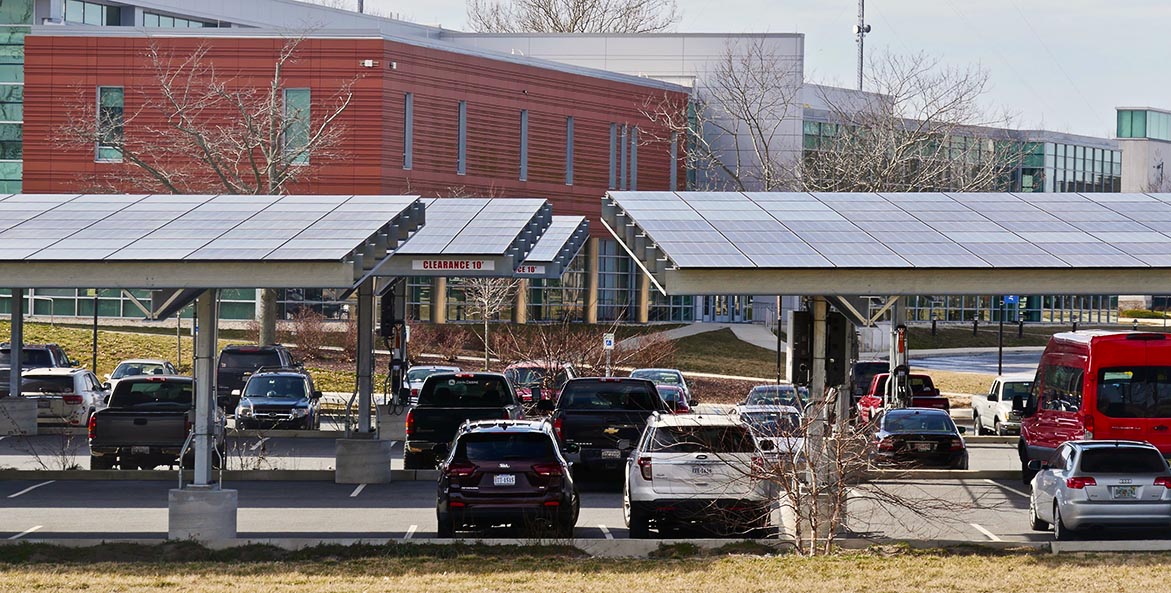Bay watershed states are increasingly seeking ways to meet renewable energy goals. Learn seven keys for environmentally-friendly solar developments that protect water quality and the planet. Take a virtual tour of CBF’s Brock Environmental Center, one of the greenest buildings in the world today. Find out more about a pollinator-friendly solar field in Carlisle, Pennsylvania. Celebrate the passage of a bill that will protect forests in Frederick County, Maryland. And take a deep dive into the latest on offshore drilling along the Atlantic Coast and what this issue means for the Bay.
Bay-Friendly Solar
Solar power is an essential part of combating climate change and the pollution that harms our water and air. But clearing forests, wetlands, or prime farmland for solar projects can lead to more pollution in rivers and streams. Read our new guide to learn seven keys for environmentally-friendly solar development in the Chesapeake Bay watershed.
Video: Building for the Bay
From treating rainwater on site to reducing polluted runoff to generating clean energy, everything about CBF’s Brock Environmental Center in Virginia Beach demonstrates it is possible to build in a Bay-friendly way. This virtual tour shows what makes the center one of the greenest, most environmentally friendly buildings in the world today.
Pollinator Power
What do bees and solar panels have in common? They’re both found at a new, seven-acre, pollinator-friendly solar field at the headquarters of the GIANT Company in Carlisle, Pennsylvania. The native meadow provides habitat for pollinators, birds, and other small wildlife while helping to reduce runoff from the site.
Forests Protected
Maryland’s Frederick County Council this week strengthened forest protections to stop forest loss. The county’s passage of this bill, which requires developers to replace every acre of forest they cut down using a 1:1 ratio, marks another milestone in a year filled with progress in strengthening forest protections across the state.
Video: Offshore Drilling? Not in My Bay!
In this webinar, the Brock Environmental Center Learning Series takes on the controversial topic of offshore drilling along the Atlantic Coast and its potential impacts to Chesapeake Bay restoration efforts, wildlife, and more. Learn from researchers and advocates what you can do to help protect our natural resources.
What You Can Do
- Register for our upcoming webinar on July 28, Regulatory Rollbacks: Undermining Bay Restoration.
- Did you see?! We’ve now got Chesapeake Bay coloring pages (for kids and adults) courtesy of local artist David Scheirer.
- Help us continue to bring the Bay to you at home each week. Give today!



